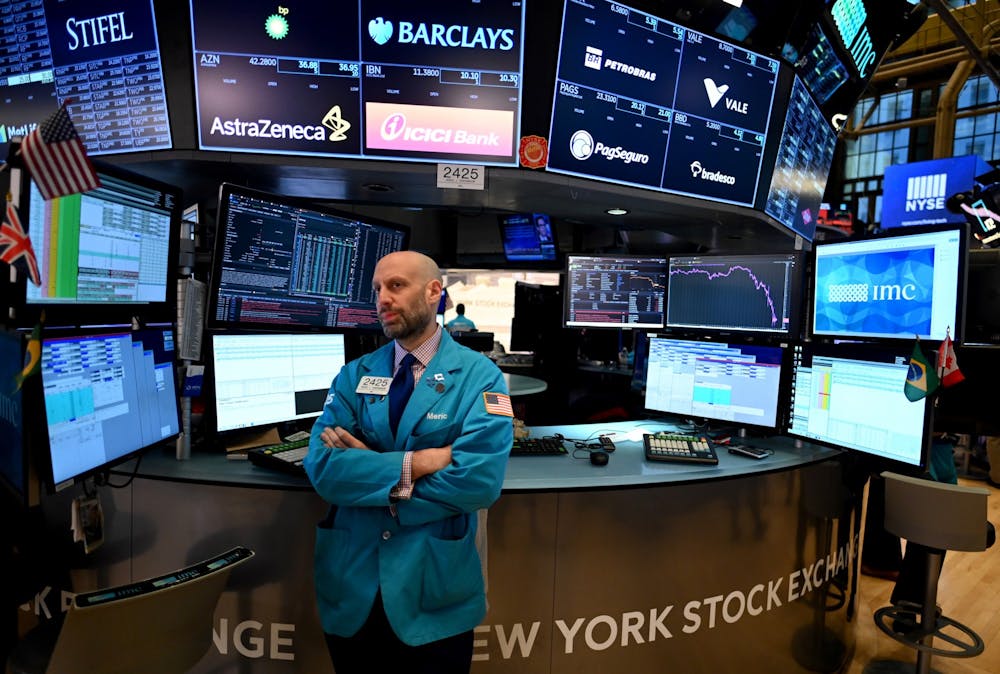Editor’s Note: This listicle is part of a series by The Ball State Daily News summarizing five stories from around the world. All summaries are based on stories published by The Associated Press.
California drought takes a toll on the world's top almond producer, the U.S. is shipping 488,000 vaccine doses to Rwanda, Wall Street lower as retail sales post steep drop in July, Fred drenches the U.S. Southeast and Americans spent less in July as COVID-19 cases surged makes up this week's five national stories.
California drought takes toll on world's top almond producer
A historic drought across the U.S. West is taking a heavy toll on California’s $6 billion almond industry, which produces roughly 80% of the world’s almonds. More growers are expected to abandon their orchards as water becomes scarce and expensive. It’s a sharp reversal for the almond’s relentless expansion in California’s agricultural Central Valley, whose dry Mediterranean-like climate and reliable irrigation system made it the perfect location to grow the increasingly popular nut. Almond orchards are thirsty permanent crops that need water year-round, clashing with a worsening drought and intensifying heat waves tied to climate change.
US shipping 488,000 vaccine doses to Rwanda
The United States this week is shipping the first vaccine doses of the 500 million COVID-19 global sharing commitment it made at the Group of Seven summit in June. The U.S. is sending 488,370 doses of the Pfizer vaccine to Rwanda, of which 188,370 come as the first batch of the half-billion dose order placed by the U.S. to share with lower and moderate-income countries. The White House says the balance of the doses will come from existing U.S. surplus of shots. The U.S. has already shared more than 110 million surplus doses this summer. The Pfizer order is expected to make available at least 200 million doses through the end of this year to be donated around the world, with 300 million more delivered in the first half of 2022.
Wall Street lower as retail sales post steep drop in July
Stocks are dropping on Wall Street early Tuesday amid turmoil in Afghanistan and unease about a weaker economic outlook in China. The S&P 500 lost 0.6% and the Dow Jones Industrial Average fell 0.7%. A report showed Americans cut back their spending last month far more than expected as a surge in COVID-19 cases kept people away from stores. Home Depot shares plunged on weak quarterly earnings. Investors watched rapid developments in Afghanistan after the Taliban took control of the country with unexpected speed and thousands of people tried to flee. Markets in London, Frankfurt, Shanghai and Tokyo also retreated.
Fred drenches US Southeast; Grace again a tropical storm
Fred weakened from a tropical storm to a depression early Tuesday as it spread heavy rains over the U.S. Southeast and spawned several apparent tornadoes in Georgia. Flash flooding and mudslides were possible in mountainous areas as it moves toward the mid-Atlantic states. No injuries have been reported from Fred, and fewer than 30,000 customers were without power in Florida and Georgia after the storm crashed ashore late Monday afternoon near Cape San Blas in the Florida Panhandle. Emergency crews were repairing downed power lines and clearing toppled trees in Fred’s aftermath.
Americans spent less in July as COVID-19 cases surged
Americans cut back on their spending last month as a surge in COVID-19 cases kept people away from stores. Retail sales fell a seasonal adjusted 1.1% in July from the month before, the U.S. Commerce Department said Tuesday. It was a much larger drop than the 0.3% decline Wall Street analysts had expected. The report offers the first solid glimpse of how the spread of the delta variant of COVID-19 may have changed the spending habits of Americans. At the end of July, the U.S. Centers for Disease Control and Prevention began recommending that even vaccinated people start wearing masks indoors in public places.





